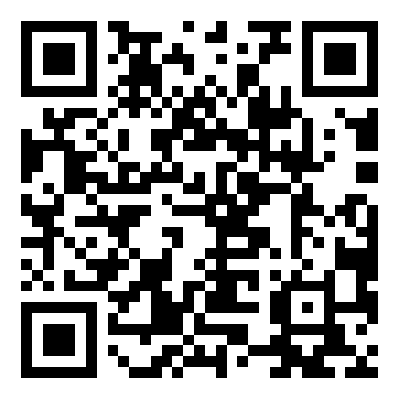TheUniversityinTransformation,editedbyAustralianfuturistsSohailInayatullahandJenniferGidley,presentssome20highlyvariedoutlooksontomorrow’suniversitiesbywritersrepresentingbothWesternandnon-Westernperspectives.Their
essaysraiseabroadrangeofissues,questioningnearlyeverykeyassumptionwehaveabouthighereducationtoday.
ThemostwidelydiscussedalternativetothetraditionalcampusistheInternetUniversity—avoluntarycommunityto
scholars/teachersphysicallyscatteredthroughoutacountryoraroundtheworldbutalllinkedincyberspace.Acomputerized
universitycouldhavemanyadvantages,suchaseasyscheduling,efficientdeliveryoflecturestothousandsorevenmillionsofstudentsatonce,andreadyaccessforstudentseverywheretotheresourcesofalltheworld’sgreatlibraries.
YettheInternetUniversityposesdangers,too.Forexample,alineoffranchisedcourseware,producedbyafewsuperstar
teachers,marketedunderthebrandnameofafamousinstitution,andheavilyadvertised,mighteventuallycometodominate
theglobaleducationmarket,warnssociologyprofessorPeterManicasoftheUniversityofHawaiiatManoa.Besidesenforcingarigidlystandardizedcurriculum,sucha“collegeeducationinabox”couldunderselltheofferingsofmanytraditionalbrickandmortarinstitutions,effectivelydrivingthemoutofbusinessandthrowingthousandsofcareeracademicsoutofwork,note
AustraliancommunicationsprofessorsDavidRooneyandGregHearn.
Ontheotherhand,whileglobalconnectivityseemshighlylikelytoplaysomesignificantroleinfuturehighereducation,
thatdoesnotmeangreateruniformityincoursecontent—orotherdangers—willnecessarilyfollow.Counter-movementsare
alsoatwork.
Manyinacademia,includingscholarscontributingtothisvolume,arequestioningthefundamentalmissionofuniversity
education.Whatif,forinstance,insteadofreceivingprimarilytechnicaltrainingandbuildingtheirindividualcareers,universitystudentsandprofessorscouldfocustheirlearningandresearcheffortsonexistingproblemsintheirlocalcommunitiesandtheworld?FeministscholarIvanaMilojevicdarestodreamwhatauniversitymightbecome“ifwebelievedthatchildcareworkersandteachersinearlychildhoodeducationshouldbeoneofthehighest(ratherthanlowest)paidprofessionals?”
Co-editorJenniferGidleyshowshowtomorrow’suniversityfaculty,insteadofgivinglecturesandconductingindependent
research,maytakeonthreenewroles.Somewouldactasbrokers,assemblingcustomizeddegree-creditprogrammesfor
individualstudentsbymixingandmatchingthebestcourseofferingsavailablefrominstitutionsallaroundtheworld.Asecondgroup,mentors,wouldfunctionmuchliketoday’sfacultyadvisers,butarelikelytobeworkingwithmanymorestudents
outsidetheirownacademicspecialty.Thiswouldrequirethemtoconstantlybelearningfromtheirstudentsaswellas
instructingthem.
Athirdnewroleforfaculty,andinGidley’sviewthemostchallengingandrewardingofall,wouldbeasmeaning-makers:
charismaticsagesandpractitionersleadinggroupsofstudents/colleaguesincollaborativeeffortstofindspiritualaswellas
rationalandtechnologicalsolutionstospecificreal-worldproblems.
Moreover,thereseemslittlereasontosupposethatanyoneformofuniversitymustnecessarilydriveoutallotheroptions.Studentsmaybe“enrolled”incoursesofferedatvirtualcampusesontheInternet,between—orevenduring—sessionsata
realworldproblemfocusedinstitution.
Asco-editorSohailInayatullahpointsoutinhisintroduction,nofutureisinevitable,andtheveryactofimaginingand
thinkingthroughalternativepossibilitiescandirectlyaffecthowthoughtfully,creativelyandurgentlyevenadominant
technologyisadaptedandapplied.Eveninacademia,thefuturebelongstothosewhocareenoughtoworktheirvisionsinto
practical,sustainablerealities.
1【单项选择题】WhenthebookreviewerdiscussestheInternetUniversity?
Aheisinfavourofit.
hisviewisbalanced.
Cheisslightlycriticalofit.
heisstronglycriticalofit.
---------------------------------
正确答案
本题考查作者的观点态度。
针对“InternetUniversity”,本文第二段提出了许多的“advantages”,随后的第三段则指出其存在的“dangers”,可见文中对网络大学的利弊均进行了客观的陈述,观点上不存在倾向性,综上,B选项正确。
故正确答案为B项。
---------------------------------
解析同上













 点击刷新
点击刷新











